Filteredwaterguide.com is supported by readers. If you purchase through referral links on our site, we make a commission at no extra cost to you. Learn more.
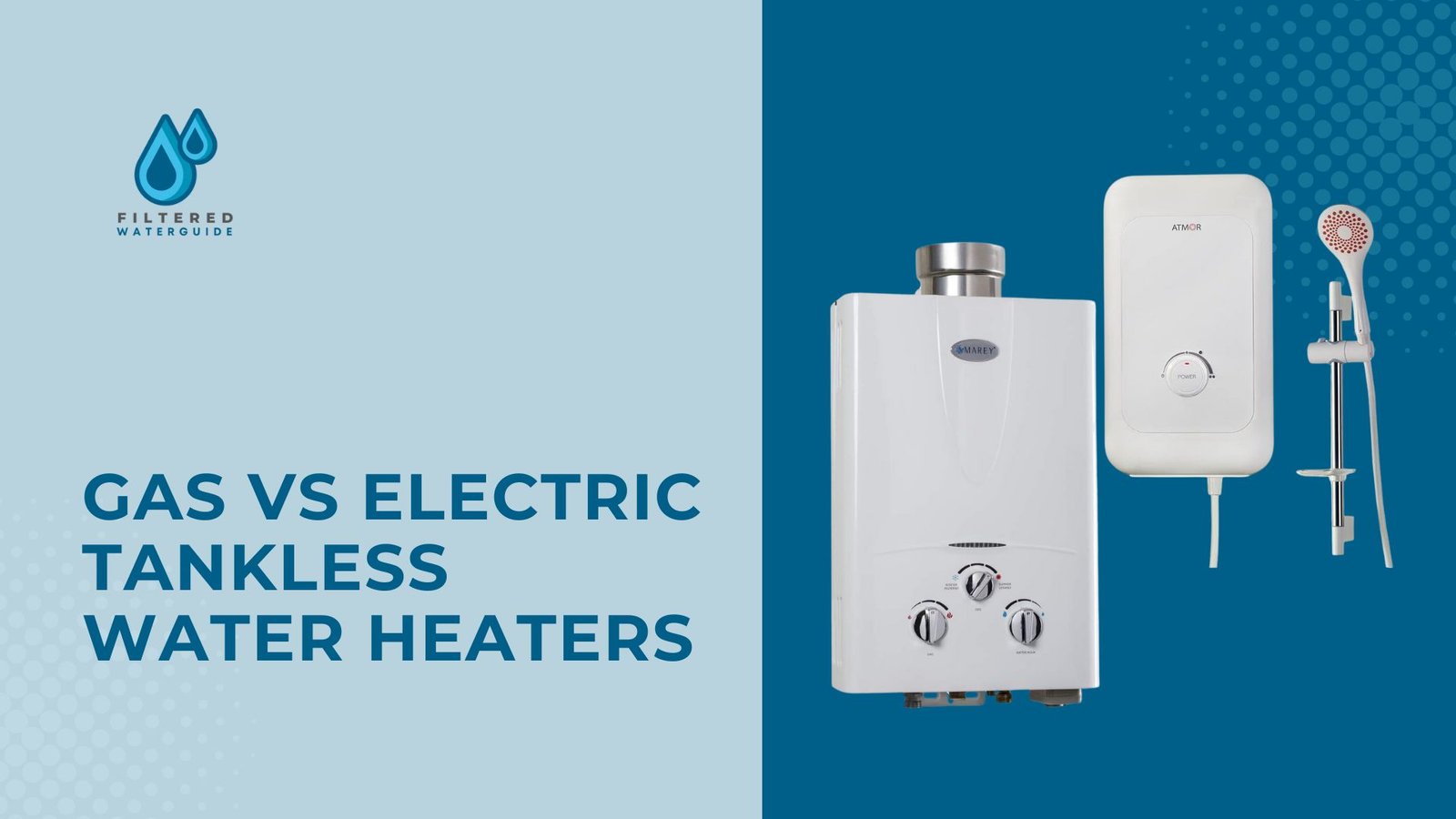
Our hands-on experience with tankless water heaters has taught us something remarkable: these innovative units aren’t just a trendy upgrade – they’re a game-changing investment for your home’s efficiency and comfort.
Through years of installations and testing as the Filtered Water Guide team of master plumbers and industry experts, we’ve watched these compact powerhouses deliver outstanding performance while slashing energy bills and lasting years longer than conventional tank systems.
But which option should you choose – gas or electric? It’s a question we hear daily, and for good reason.
Having installed and evaluated hundreds of different models across diverse home settings, we can tell you this with certainty: the best choice isn’t universal. Each type – whether it’s powered by natural gas, propane, or electricity – brings its own set of benefits to the table. In our extensive field experience, finding your perfect match comes down to four critical elements: your household’s hot water demands, existing home setup, regional weather patterns, and personal priorities.
| Gas Water Heaters | Electric Water Heaters | |
|---|---|---|
| Purchase Cost | $1,000-$1,200 | $500-$700 |
| Investment for Installation | High | Low for Most Homes |
| Operating costs over long term | Lower than electric but projected to rise | Higher but Stable |
| Flow Rate Capacity | At least 8 GPM+ | Up to 8 GPM in Warm Climate and 3.5 GPM in Cold Climate |
| Maintenance Needs | Annual | Minimal |
| Venting Requirements | Necessary | None |
| Impact on Environment | Relies on Fossil Fuels | Depends on Energy Source |
Through our extensive hands-on experience installing and testing both types of systems, we’ve learned that the comparison isn’t as straightforward as it might appear at first glance. While the chart above might suggest electric heaters have the edge, we’ve discovered that gas units offer some compelling advantages that could make them the superior choice for certain households, despite their fewer apparent benefits.
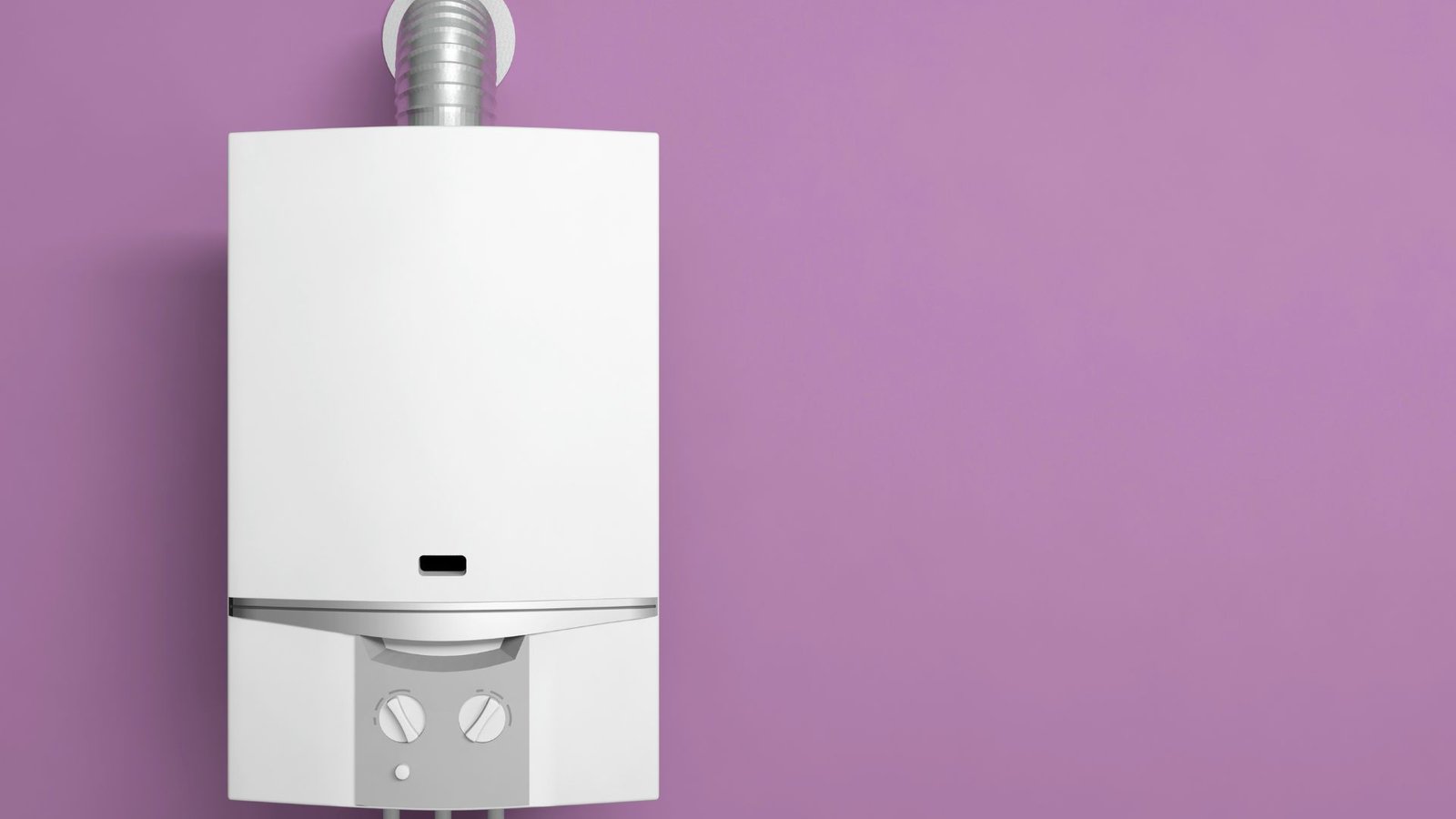
In our years of testing and installation, we’ve consistently found that gas water heaters deliver substantially higher flow rates than their electric counterparts. From our measurements, most gas units reliably provide at least 8 gallons per minute (GPM), with propane models reaching up to 11 GPM and natural gas versions delivering up to 10.6 GPM. These impressive numbers translate to abundant hot water for most households.
Based on our field experience, this superior capacity makes gas heaters the preferred choice for larger homes with high water demands. We particularly recommend gas units for cold-climate installations or when you want to heat water for an entire house using a single unit.
While our initial calculations show higher upfront costs for gas units, we’ve tracked the numbers carefully and found that these systems typically pay for themselves through reduced monthly operating expenses. Through our cost analysis across different regions, we’ve documented savings of 10-15 percent compared to electric models, though exact figures vary based on location and whether you choose natural gas or propane.
From our market research and installation experience, we’ve found that gas water heaters command premium pricing – typically double that of electric alternatives. Quality gas units start around $1,000, with electronic ignition models (which eliminate pilot lights) reaching approximately $1,200.
We’ve installed both condensing and non-condensing systems, and while non-condensing units offer lower initial costs, they’re less efficient long-term. Unlike condensing systems that capture and reuse hot water vapor, non-condensing units vent this heat through a flue. Our testing confirms that condensing systems provide better energy efficiency, despite their higher upfront cost.
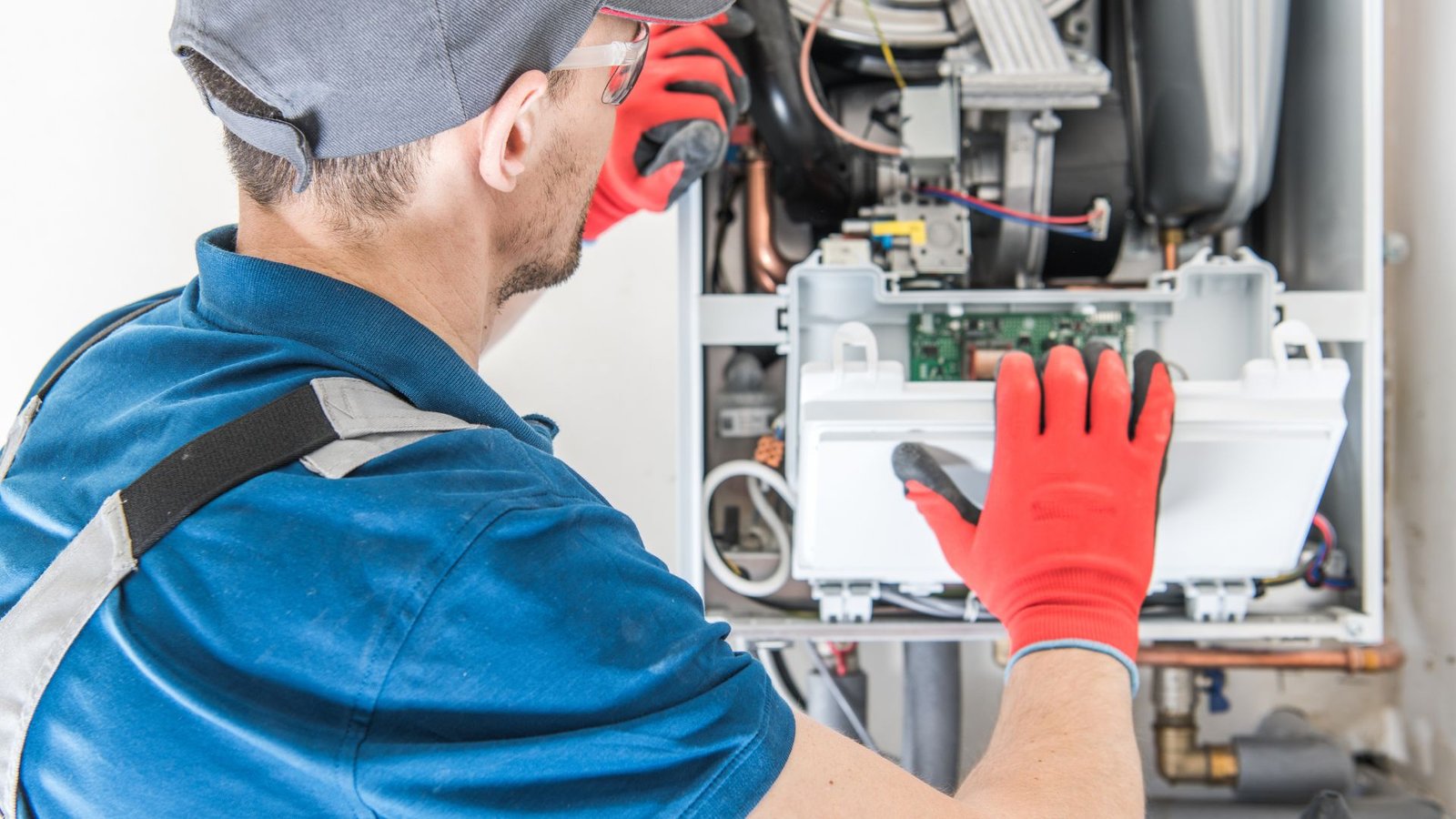
Through thousands of installations, we’ve learned that setting up gas water heaters can be significantly more involved. For homes without existing gas lines, we often find installation costs prohibitive – and sometimes gas service isn’t even available in certain areas. Even with existing gas service, converting from electric to gas typically requires extensive modifications, including possible gas line diameter upgrades and new circuit breaker installations.
For our high-altitude installations, we face additional challenges. These locations require specialized HVAC expertise to adjust for reduced oxygen levels, ensuring clean gas combustion and preventing dangerous carbon monoxide production – crucial for both natural gas and propane systems.
If you’re considering an HVAC professional, this guide offers valuable insights on managing installation costs.
Our extensive installation experience has shown that venting requirements deserve special attention. When installing your first tankless gas heater, you’ll need a completely new venting system – and this applies even if you’re upgrading from a traditional tank gas heater. We’ve found that different models have specific combustion air needs that your existing setup likely won’t accommodate. For example, non-condensing units specifically require category III stainless steel venting systems. In our installations, we’ve noticed that situations requiring sidewall venting can increase both complexity and cost significantly.
Through our safety inspections, we’ve learned that even minor damage to gas piping or the heater itself can result in gas leaks. Our team takes this seriously because undetected leaks present real risks of carbon monoxide poisoning or household explosions. This is a crucial safety consideration we always discuss with our clients.
Based on our professional experience, annual HVAC inspections are non-negotiable for safe gas heater operation. These checkups must include a thorough examination of the unit, with special focus on fuel combustion efficiency.
We’ve also found that flushing your gas heater once or twice yearly is essential. This maintenance step prevents limescale buildup and helps achieve the full expected lifespan of your unit. While an HVAC professional can handle this service, we’ve guided many homeowners through the DIY flushing process successfully.
In our work with rural clients, we’ve observed that homes relying on delivered gas face potential hot water interruptions if their gas supply runs out. You’ll have to wait for the next delivery to restore hot water service. However, we want to clarify that this isn’t a concern for homes connected to municipal gas lines.
Our long-term market analysis shows that while both electric and gas heaters typically last 20+ years, their operating costs follow different patterns. We’ve tracked utility prices extensively and noticed that electric rates tend to remain relatively stable over time. Gas prices, however, show more volatility and may trend upward significantly. While gas currently offers lower operational costs than electricity, our research suggests this advantage might diminish over time.
Through our countless installations and consultations, we’ve determined that gas water heaters are ideal for homes needing consistent, high-volume hot water year-round, particularly in colder climates. Our team typically recommends gas heaters to clients who can manage the higher initial investment in exchange for potential long-term utility savings.
While we’ve outlined several considerations, our practical experience confirms that gas tankless heaters remain an excellent choice for whole-house applications. We’ve consistently found that gas units provide superior heating capacity compared to electric alternatives, making them particularly effective for larger homes in cold regions that demand reliable hot water delivery.
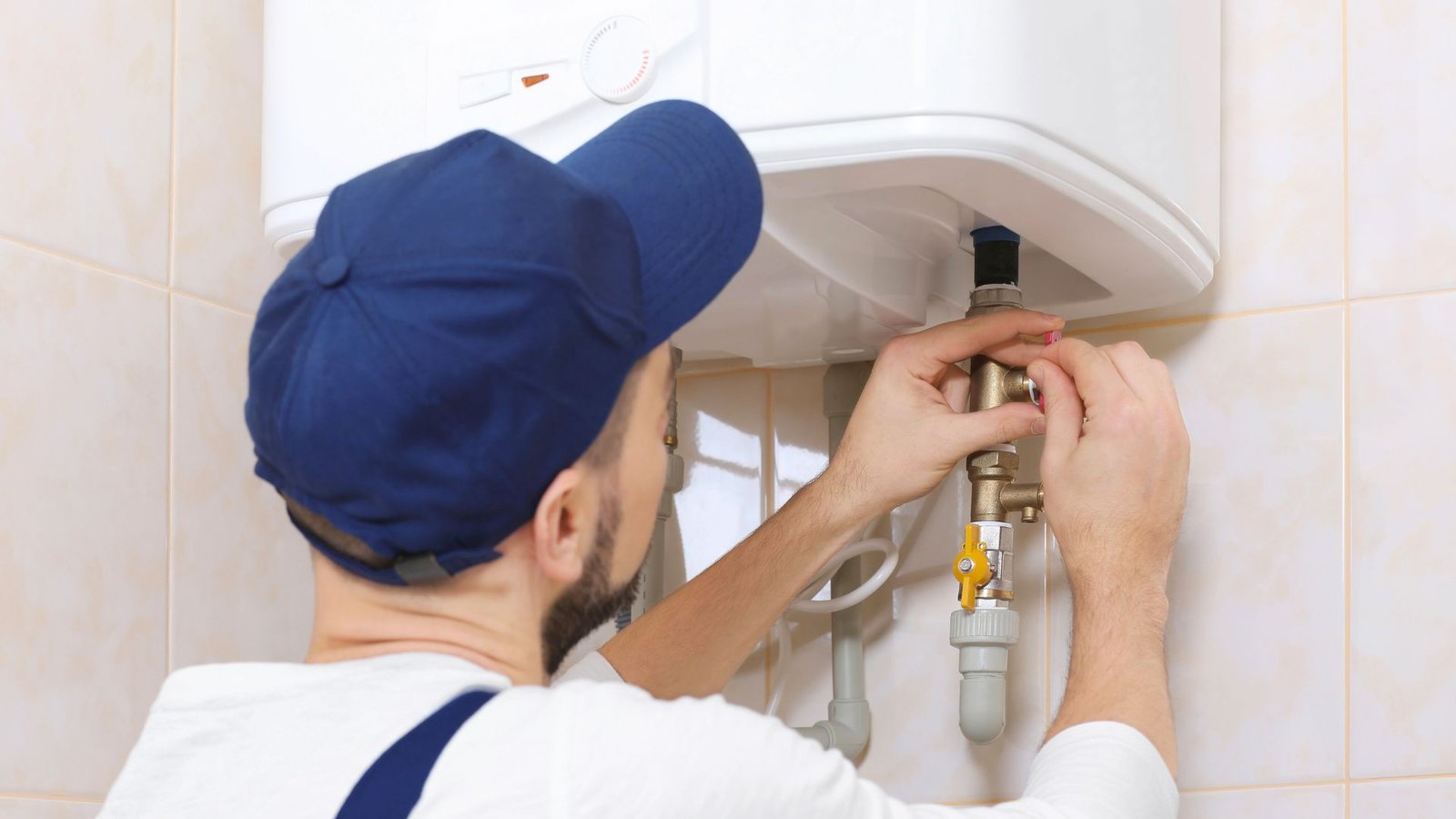
In our extensive testing and installations, we’ve discovered that electric tankless water heaters offer distinct advantages that deserve careful consideration before making your final choice between gas and electric options.
Through our market research and purchasing experience, we’ve confirmed that quality electric water heaters are surprisingly affordable. We regularly find excellent models priced around $500, with even the most advanced units rarely exceeding $700.
Our installation team has found that electric heater setup is remarkably straightforward – the main requirement is adequate power supply. This simplicity translates to faster installation times and lower costs compared to gas heaters. While some homeowners successfully handle DIY installation (something we never recommend for gas units), we should mention that many warranties require professional installation for coverage.
In our countless home assessments, we’ve been consistently impressed by how compact electric tankless heaters are – typically one-third the size of comparable gas units. We’ve successfully installed these space-efficient systems in various creative locations, from small closets to tight utility spaces, thanks to their simple design and absence of ventilation requirements.
Our maintenance records show that electric heaters need just one annual flush, compared to the twice-yearly requirement of gas units. We’ve found that routine maintenance is as simple as keeping the inlet screen filter clear. Based on our experience, installing a pre-filter significantly reduces sediment buildup and maintenance frequency.
When servicing different heater types, we’ve consistently noticed that electric units are far simpler to troubleshoot and repair. Unlike the complex heat exchanger systems in gas heaters, electric units typically have straightforward components that allow for quick diagnosis and repairs, minimizing downtime.
Our efficiency testing reveals that electric water heaters typically achieve 98-99% thermal efficiency, significantly outperforming gas units that usually range between 80-85%. We’ve observed that these superior efficiency ratings can help offset higher electricity costs.
Through our environmental impact studies, we’ve confirmed that electric heaters’ eco-friendliness varies with power source. We’ve seen particularly impressive results when these units are paired with solar panels, wind power, or nuclear energy. Our research shows that even standard grid-powered electric heaters have a smaller environmental impact than gas units, as they don’t directly burn fossil fuels or release greenhouse gases.
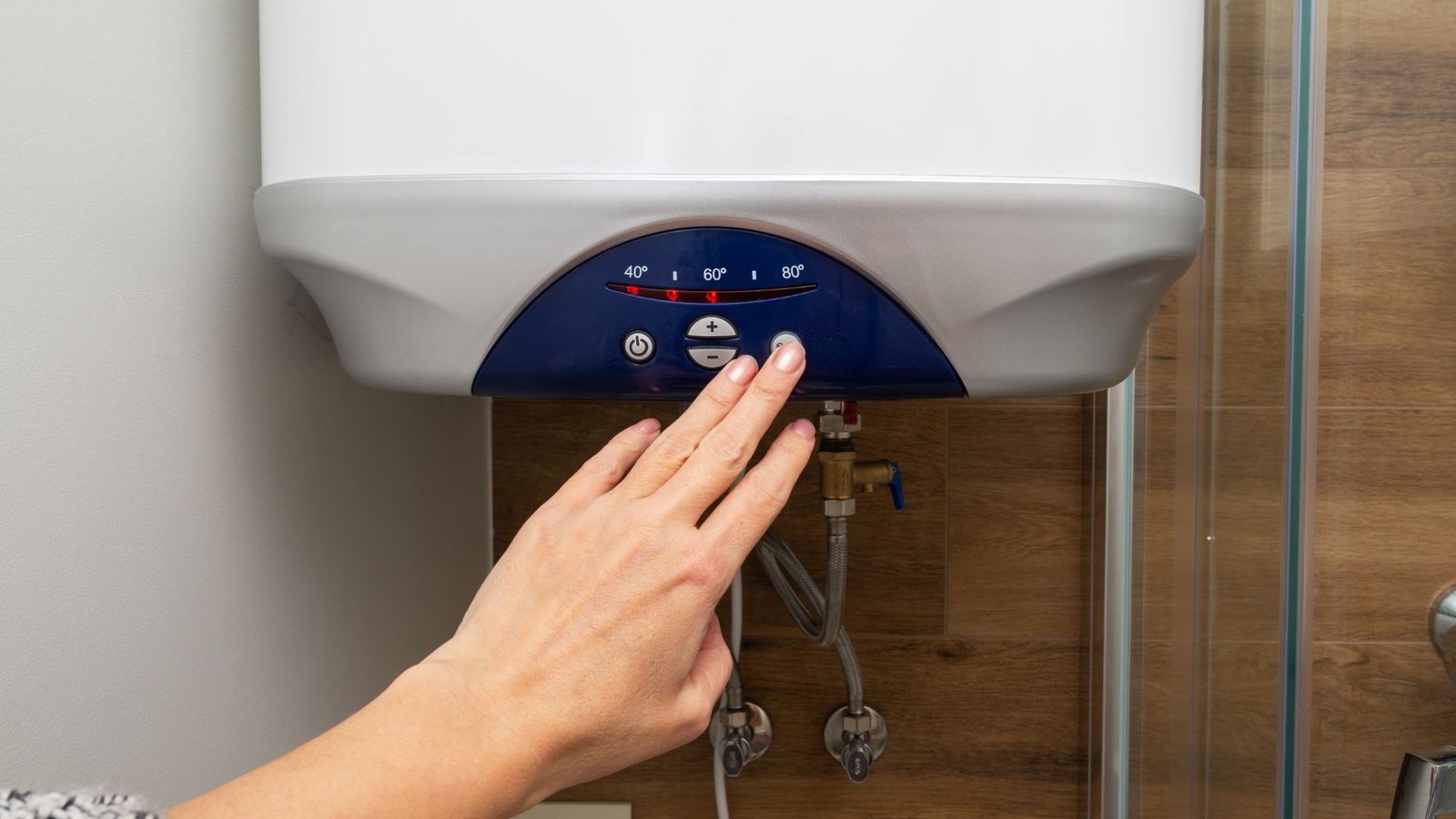
In our energy consumption analysis, we’ve found that electric heaters operate on a true on-demand basis – they only draw power when hot water is needed. This contrasts with many gas heaters that maintain a constant pilot light, which our measurements show creates continuous energy consumption, however small.
Through our cold-climate installations, we’ve learned that homes need 200 AMP electrical supply for optimal performance. Our field testing shows that anything less won’t maintain adequate water flow during cold weather. While upgrading your electrical supply is possible, we’ve found the costs can be substantial.
However, our experience in warmer regions indicates that 150, 125, or even 100 AMP service can be sufficient when temperatures stay mild year-round.
From our extensive performance testing, we’ve confirmed that electric heaters deliver lower flow rates than gas units in cold conditions. We typically see 3 to 3.5 GPM in cold weather, though this can increase to 8 GPM in warmer temperatures. We’ve noticed this limitation particularly affects households running multiple hot water applications simultaneously.
Our emergency response experience has shown that electric heaters completely shut down during power outages. However, we should note that many gas heaters aren’t immune to power failures either – we’ve found that their electrical sensors and switches often require power to function.
Based on our installation history, we strongly recommend electric heaters for homes already configured for electric water heating. We’ve seen that converting from electric to gas typically involves complicated modifications. Our team also suggests electric units when immediate installation and budget constraints are priorities, as they offer savings on both purchase and setup costs. We’ve had great success installing these units for point-of-use applications and in homes with modest water demands.
From our comparative analysis, the main drawback of electric versus gas tankless heaters comes down to hot water output capacity – electric models simply can’t match the production capabilities of gas units.
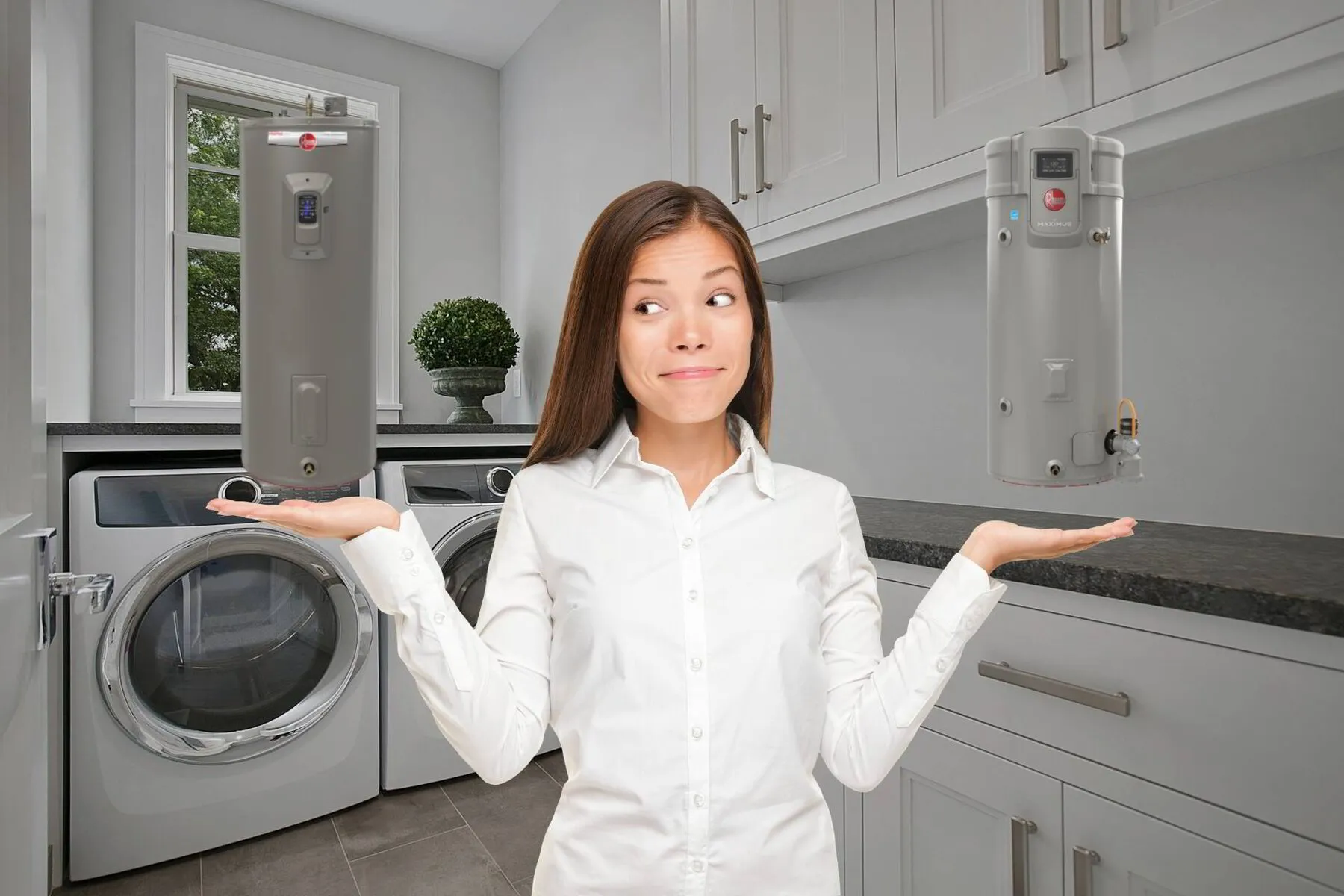
Our consultation experience has revealed some clear-cut scenarios: homes without natural gas or propane access should obviously choose electric. Conversely, we direct clients with frequent power interruptions toward gas heaters, specifically models without electrical components.
We’ve also encountered situations where homes need electrical upgrades to support tankless electric heaters, even when replacing electric tank units. This requirement stems from the high instantaneous power demand of tankless systems – while they’re more efficient overall, they need significant power to heat water quickly, unlike tank heaters that heat gradually over time.
For many of our clients, however, the choice isn’t straightforward. Here’s our comprehensive comparison chart based on various common scenarios:
| Situation | Gas Tankless | Electric Tankless |
|---|---|---|
| You have a limited budget to spend on your water heater | recommended | |
| You want lower utility bills | recommended | |
| You already have a gas heater | recommended | |
| You already have an electric heater | recommended | |
| Your building lacks a natural gas or propane service | recommended | |
| You live in a cold climate | recommended | |
| You want high water pressure at all times | recommended | |
| You live in a rural area and have your gas delivered | recommended | |
| You want the greenest option | recommended | |
| You want to install the water heater yourself | recommended | |
| You want hot water for multiple appliances at the same time | recommended | |
| You have limited space | recommended | |
| Your home has a low electrical supply | recommended |
Based on our years of installation experience and customer feedback, we’ve found that selecting the right model within your chosen category is just as important as choosing between gas and electric. For example, if operating costs concern you but you’re leaning toward electric, we’ve identified units with exceptional energy factor ratings. Similarly, if you prefer gas but worry about maintenance, we’ve thoroughly tested models with outstanding reliability records and comprehensive warranties.
For detailed insights from our extensive testing and real-world installations, check out our comprehensive review guide: